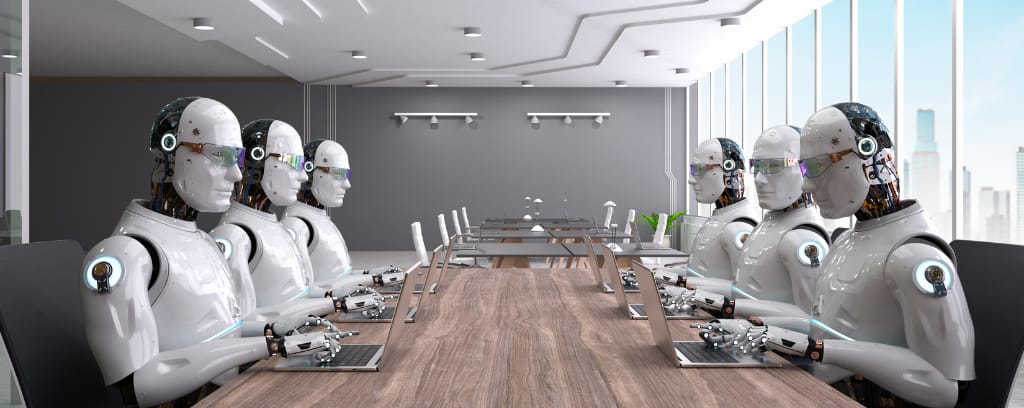It seems everyone is still talking about ChatGPT, GPT-4, Bard, and artificial intelligence (AI) or other large language models (LLM). I’ve had some entertaining and insightful conversations with AI bots, but I’ve also had some frustrating experiences. They get a lot wrong. Perhaps more accurately, I should say they predict a sequence of words I do not expect or want.
Aside from it’s entertainment value, generative AI has raised a number of valid questions for employees:
- Can the bots do my job better?
- Are any jobs safe?
- How long will it be before the bots come for my job?
This is especially concerning for workers in white collar jobs, as we’ve seen from recent layoffs at Alphabet, Amazon, and Netflix. To answer these questions, we have to first understand what AI is and how tools like ChatGPT and Bard work.
What Is Generative AI?
Generative AI is a type of computer intelligence that is used to create new content, such as text, images, and music. This content is generated by models trained on large datasets of existing content. It’s like sending students to law school and training them on legislation and case law. Both the model and the student do a lot of reading!
Once a generative AI model has been trained, it can be used to generate new content that is similar to the content it was trained on. For example, ChatGPT is trained on text data available through September 2021. It uses that data to predict the next word in a sequence, as well as where to use punctuation and capital letters. The sequences become sentences and paragraphs, or generated content. This is all based on the probability that a selected word will be followed by another one commonly used with it.
How Employers are Using Generative AI
Large employers have long used AI to create job posts and scan resumes for key words in those posts. This can be an effective way to review thousands of applications submitted for a small number of jobs. Yet the results are only as good as the model–and the humans that trained it.
Because humans are inherently biased and flawed, so have been some of the models. A number of legal questions have arisen, such as:
- How can employers ensure that AI-based decisions are fair and impartial?
- What are the legal implications of AI-based discrimination?
- Do employers need a policy on AI use? What should be in it?
For the time being, humans will answer these questions. Employers will also need people to develop, maintain, and use the AI systems.
Other Ways Generative AI Might Impact Employment
For a recent panel discussion with Bonnie D. Graham on Technology Revolution: The Future of Now, Lenore Horton, Dr. Tamara Nall, Doug Rowe, and I submitted our predictions. I encourage you to watch the recording for more insights.
Here’s what I see coming:
- ChatGPT will show managers how ineffective they are at giving instructions because it requires very specific prompts. People who are used to giving vague instructions will struggle to get ChatGPT to do what they want. This will force them to become more clear and concise in their instructions. As they get better at prompting the bots, they will also improve communications with employees.
- Managers will improve their conflict resolution skills by using the bots. Bard and ChatGPT will help them take the emotion out of conflict and focus on a wider range of possible solutions. Supervisors will still have to navigate the feelings that arise in themselves and their employees, but they will learn to do so more mindfully.
- People who try to delegate entire projects to the bots will show their incompetence quickly and will probably lose their jobs. AI is not a replacement for human judgment (yet). It’s more like having a very smart and efficient assistant that you still need to supervise.
- Employees who want to keep their jobs, even the ones that require repetitive, mundane tasks, will have to show their employers why they can do them better than the bots. It’s no different than having to show you can do the job better than other candidates. Your new competitor is now a bot that promises greater efficiency and little drama.
If you want to keep your job, you need to show your employer that you are worth more than the bot. This means being more productive, more creative, and more engaged in your work. It also means being able to adapt to change and learn new things quickly. You can do this!

